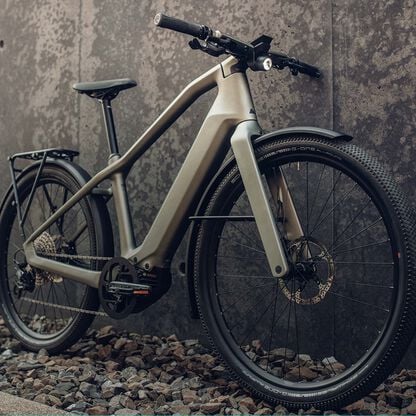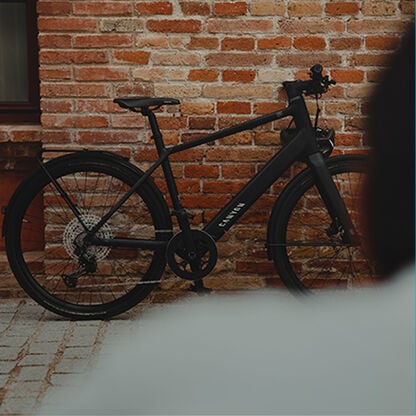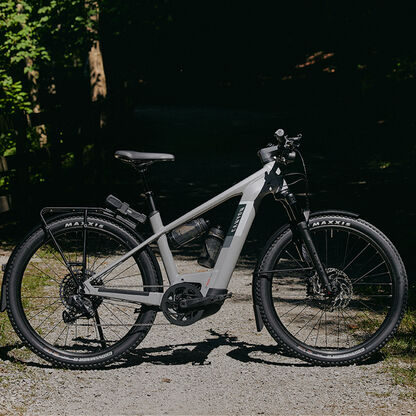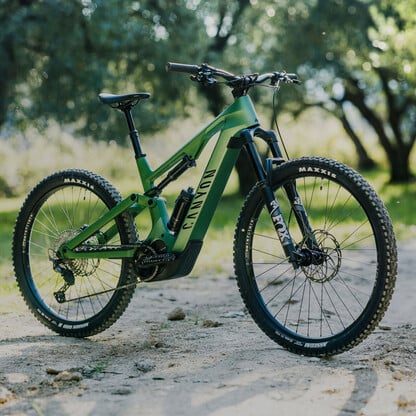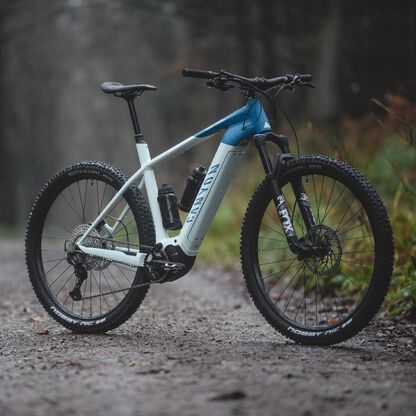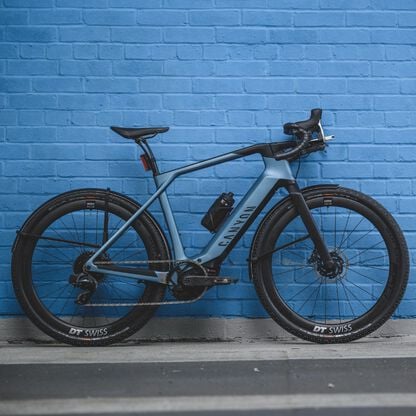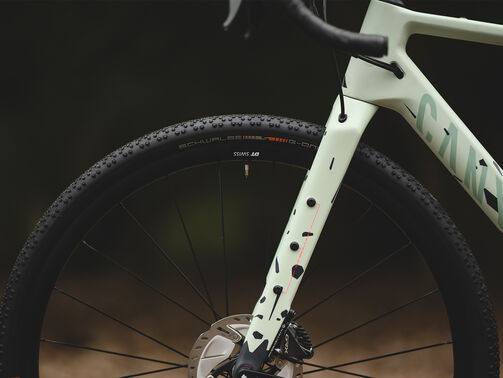How to look after your e-bike battery
E-bike batteries are expensive to replace, so you need to take good care of them. By following our advice, you’ll get the longest life out of your e-bike’s battery.


E-Bike Drives and Batteries
E-bike battery life can vary between manufacturers but it’s typically between 500 and 1000 charging cycles before the battery ceases to be of much use in day-to-day life. This is the equivalent to a couple of laps of the planet, so rest assured if you look after your battery well, you’ll get thousands of kilometres of use before you need to think about a replacement.
Across our range of e-bikes, you’ll notice three different manufacturers all with their own unique merits for the style of riding for which the bike is designed.
-

-
Fazua Evation
Lightweight and compact, yet powerful
Found on: Commuter:ON, Endurace:ON, Roadlite:ON
-
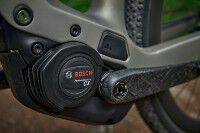
-
Bosch Performance Line CX
Award-winning manufacturers of powerful e-bike motor drives
Found on: Grail:ON, Pathlite:ON, Precede:ON
-

-
Shimano Steps
The brand new and fully integrated Shimano EP8 in use on our E-MTB range.
Found on: Grand Canyon:ON, Neuron:ON, Spectral:ON, Torque:ON
Using your e-bike battery
Once you have your e-bike setup and ready to go, there are a number of factors that will affect how long your battery lasts while you’re out and about. The climate in which you ride will impact the performance of the battery at both ends of the spectrum. Batteries struggle to perform at their optimum when it’s too hot and when it’s too cold. If at all possible, ride your bike between 5°C and 30°C. When it’s too hot or too cold, the battery won’t last as long as you may need it to.
E-bikes have different modes depending how much power you require to complete your journey. Obviously, the more power you need, the quicker the battery will drain. If you have a longer journey in mind, consider using as little power as possible if you won’t be able to recharge at some point between home and your destination.
Riding harsher terrain also puts more strain on your battery because it’s more difficult to ride. A few hours shredding the trails will use more power than the same amount of time riding smooth tarmac. You should factor this into your route planning and pack your charger in case you need to top up en route or back at base. Some chargers are compatible with inverters and car charging points which can be useful if you’re riding laps of remote trails.
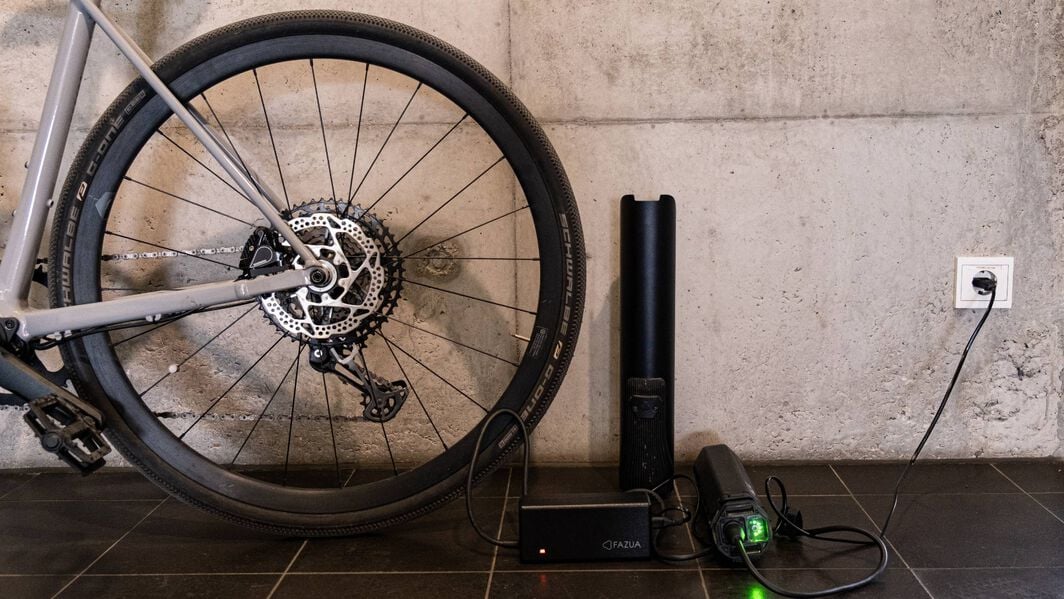
Charging your e-bike battery
One of the biggest myths about batteries is that you have to drain it completely before recharging it. Lithium batteries have no memory meaning you can charge it at any time without negatively affecting the lifespan of the battery. Similarly, interrupting a charging cycle will have no impact on the longevity of the battery, so if you have to dash out to the shops mid-charge, feel free!
Most batteries can be fully recharged from empty within four to six hours either on or off the bike depending on your setup. Best practice is to find a space at room temperature where you can keep an eye on your bike as it charges. You should always charge your bike with the supplied charging cable otherwise you risk irreparable damage from unapproved third-party equipment which can also void any warranties.
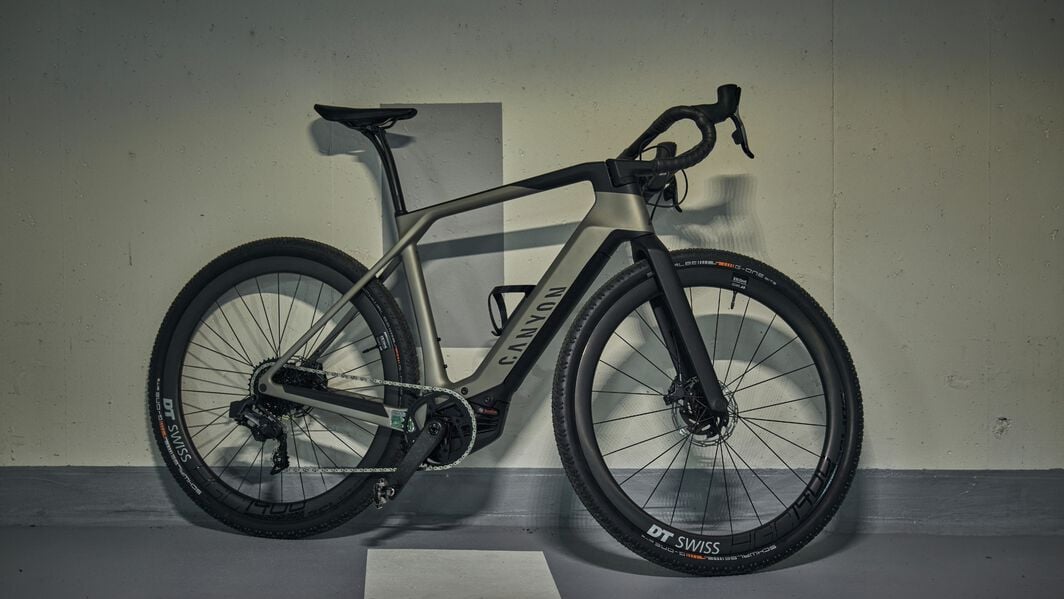
Storing your bike between rides
You should always store your bike at room temperature. If that’s not possible (bike sheds tend to be outside and subject to the elements), take your battery inside with you.
If you’re not using your bike for an extended period of time, Bosch and Fazua recommend you store the battery at room temperature at 30%-60% capacity while Shimano suggests 70% capacity or higher for their e-bike drives.
Travelling with your bike brings its own challenges. A lot of airlines don’t permit e-bike batteries on their flights, so you may have to hire a battery when you arrive at your destination. Check with your airline before you fly and make arrangements at your destination. If you’re using a bike rack on the back of a vehicle, remove the battery before you set off and store it inside your car or van to protect it.
Cleaning your e-bike battery
Like it or not, bikes need cleaning and that’s especially true in winter when trails are wet and muddy or when the weather moves in midway through your commute. Cleaning an e-bike is easy but at the very least, it’s important to pay attention to the battery. Most e-bike batteries have a waterproof housing to keep them in good working order. Bosch recommends wiping the battery and contact points regularly with a damp microfibre cloth. Shimano, Bosch and Fazua do not recommend pressure washers, so if you have mud sticks to your bike, you’re going to have to use some elbow grease.

Extending the lifespan of your e-bike battery
Riding in accordance with best practice is a sure fire way to increase your battery’s longevity. Flat
tyres increase resistance and make it harder to move the bike therefore putting more strain on the battery, so make sure you check the tyre pressure before leaving the house. Keeping your tyres inflated properly means you’ll easily glide over the chosen terrain.
Maintaining and cleaning your bike regularly will also improve the battery life. A dirty bike is a slow bike. Over even a short period of time mud, road grime and general wear and tear causes the components to seize up again forcing you to use more power when you ride. This might go unnoticed for a long time before the muck really begins to penetrate the rear derailleur and chainset and slow you down.
Super impressed with the battery life. By the end of the ride, I still had 3 bars left ,and I covered all the trails I normally ride in 1/3 of the time.
Kaos Seagrave - CLLCTV // Torque:ON
Replacing your e-bike battery
No matter how many precautions you take, your battery will need replacing at some point in its life years from now. We don’t recommend replacing your battery with cheap alternatives as we can’t guarantee their safety. To avoid all doubt,
replacement batteries are available in our webshop.
If you suspect your battery has a fault, get in touch with us and we’ll be able to properly diagnose any potential issues and work out the next steps.
Disposal of lithium batteries is an important environmental concern. You should never throw away your battery with your normal household waste. Instead, many companies and manufacturers accept the return of batteries and will recycle them in accordance with safe and sustainable practices. Bosch batteries for example reuse some of the raw materials to reduce the impact to the environment.
My e-bike won't turn on - what should I do?
E-bike with a Shimano motor and top tube power button can't be switched on using the power button.
Your bike’s power button has an internal battery. If the battery has too little charge, then it won't work. There are three possible solutions:
1. Try turning your e-bike on using the button on the battery. Then, you can ride the e-bike, and the top tube power button will be charged as you ride.
2. If you charge the main battery while it's installed in the bike, that will also charge the power button. To give the button enough time to charge, the main battery should be nearly empty when you start charging, and you should charge it for at least 3 hours.
3. Take your battery to a specialist dealer, who can connect it to a PC and perform a diagnostics check on the battery. This requires E-Tube software version V4.0.4 or higher on the PC. For charging, the power button is connected individually. After connecting their computer to the battery, the dealer can perform an error diagnostics check under Maintenance. A ‘Load button’ appears afterwards. After pressing the button, the display is loaded. All information from Shimano can be found here.
If the bike still does not turn on, please contact one of our service partners or our service workshop in Koblenz, Germany using our online contact form.
Discover our Electric Bikes
Did this article help?
Thank you for your feedback

